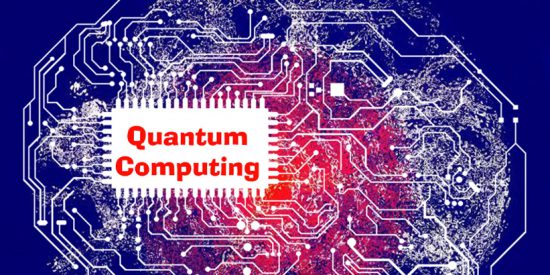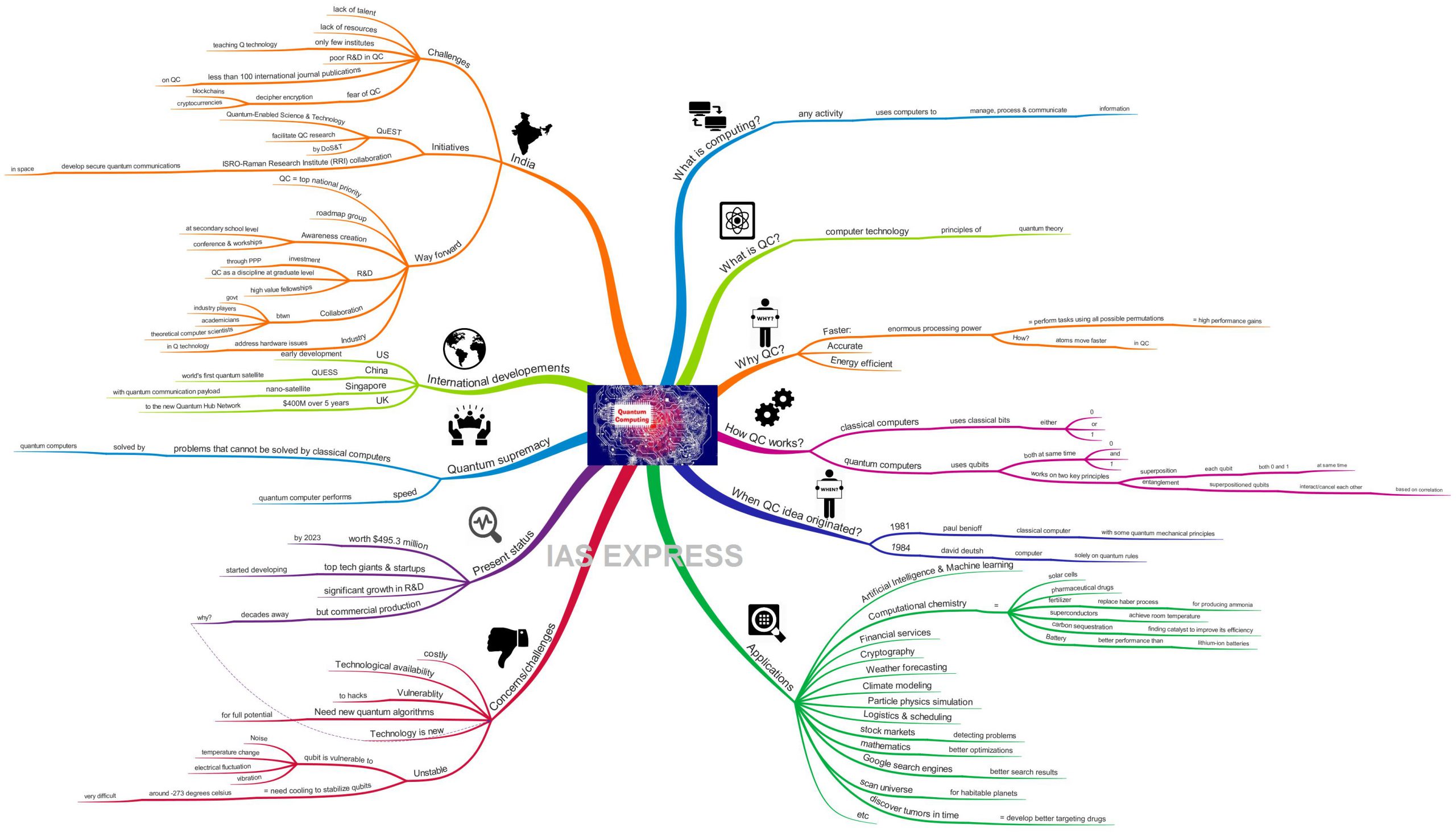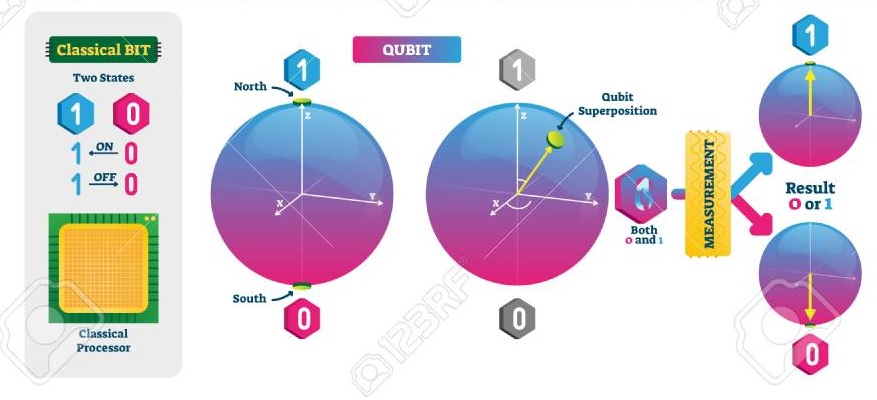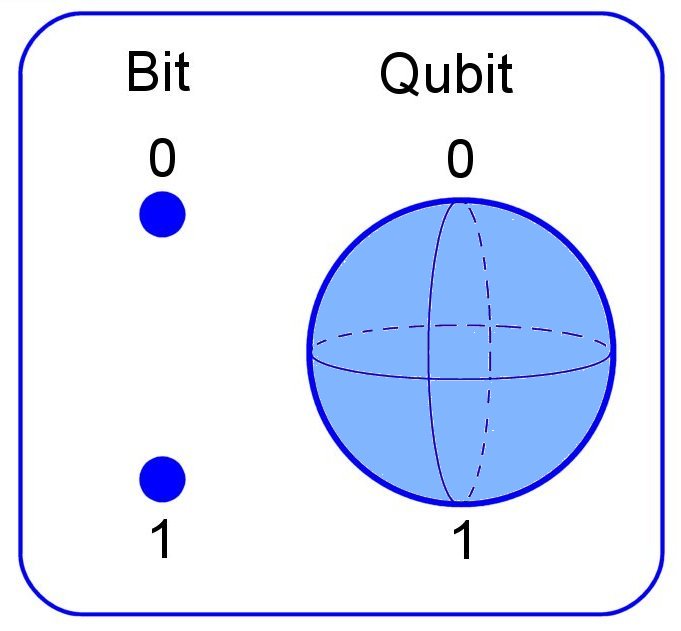Quantum Computing – Explained in Layman’s Terms

Fifty years ago, smartphones would have been the ultimate computing wizardry. Just as classical computers were almost unimaginable to previous generations, we’re now facing the birth of an entirely new type of computation, that is, quantum computing.
The country which is able to control the future of quantum technology can become an “Information Superpower” and that is why many developed and developing countries are in the race to develop quantum technologies.
USA, China, Russia, Europe, Australia, and Israel are among the nations that have already invested millions of dollars in building networked national research initiatives in quantum information and technologies.
So it is very important that India builds expertise and trained manpower in the broad area of quantum technologies and quantum computers.
This topic of “Quantum Computing – Explained in Layman’s Terms” is important from the perspective of the UPSC IAS Examination, which falls under General Studies Portion.
What is computing?
Computing is any activity that uses computers to manage, process, and communicate information. It includes the development of both hardware and software. Computing is an important and integral component of modern industrial technology.
What is Quantum Computing?
Quantum Computing is the area of study focused on creating computer technology based on the principles of quantum theory which describes the nature and behaviour of matter and energy on the quantum (atomic and subatomic) level.
Why Quantum Computing?
Development of a quantum computer would mark a major leap forward in computing capability far greater than that of a modern-day supercomputer as the quantum computer has the enormous processing power and it can perform tasks using all possible permutations simultaneously = the performance gains are enormous.
For instance, to sort a billion numbers, a quantum computer would only need 3.5 million fewer steps than a conventional machine.
The following are the major advantages of Quantum Computers.
- Faster: it can perform any task faster as compared to a classical computer. Because atoms move faster in a quantum computer than a classical computer.
- Accurate: it’s highest level accuracy makes it suitable for national security and big data handling.
- Energy-efficient: it wastes less energy while working = it is cost-effective after implementation.
How do the Quantum Computing works?
- A classical computer performs operations using classical bits, which can be either 0 or 1.
- Now, in contrast, a quantum computer uses quantum bits or qubits, which can be both 0 and 1 at the same time. It is this property that gives a quantum computer its superior computing power.
- Elementary particles such as a single photon, a nucleus or an electron can be used as a qubit. Some researchers are using the outermost electron in phosphorous as a qubit.
- Quantum computers operate based on two key principles of quantum physics: superposition and entanglement.
- Superposition means that each qubit can represent both a 1 and a 0 at the same time.
2. Entanglement means that qubits in a superposition can be correlated with each other; that is, the state of one qubit (whether it is a 1 or a 0) can depend on the state of another. Entanglement enables the qubits to interact with each other which allows them to perform certain calculations exponentially faster than conventional and even supercomputers.
Where and When was the idea of quantum computing originated?
The essential elements of quantum computing originated with Paul Benioff, working at Argonne National Labs (USA), in 1981. He theorized a classical computer operating with some quantum mechanical principles.
But it is generally accepted that David Deutsch of Oxford University provided the critical impetus for quantum computing research. In 1984, he theorized the possibility of designing a computer that was based solely on quantum rules and published his breakthrough paper. With this, the race began to exploit his ideas.
What are the applications of quantum computing?
Artificial Intelligence (AI):
There is an overabundance of data (image, video, and text) or Big Data in the world. Artificial intelligence needs to be able to process these large datasets for analysing it. But we need more powerful computers for AI to process the petabytes of these unanalyzed data.
Quantum computers could empower machine learning by enabling AI programs to search through these gigantic datasets concerning medical research, consumer behavior, financial markets, etc—and make sense of them.
Computational Chemistry:
Today’s digital computers can analyze only the simplest molecules. But quantum computers can do precision modeling of complex molecular interactions and also find the optimum configurations for chemical reactions.
Google has already made inroads in this field by simulating the energy of hydrogen molecules. The implication of this is – more efficient products, from solar cells to pharmaceutical drugs, and particularly fertilizer production; since fertilizer accounts for 2 percent of global energy usage, the consequences for energy and the environment would be profound.
Here are just a few examples of significant problems that could see large payoffs if we can solve them.
- Replace the Haber process to produce ammonia for use in fertilizers.
- Find new materials that can achieve a room-temperature superconductor.
- Find a catalyst that can improve the efficiency of carbon sequestration.
- Develop a new battery that can significantly improve the performance of today’s lithium-ion batteries.
Financial services:
Quantum computers can be used for complex financial modeling and risk management in the financial industry by finding new ways to model financial data and isolating key global risk factors.
Cryptography:
Online security depends on the factoring large numbers into primes which can be done by digital computers themselves, however, it would consume an immense amount of time that makes “cracking the code” expensive and impractical.
Quantum computers can perform such factoring more efficiently than digital computers = Quantum computing can soon replace those obsolete methods.
Weather Forecasting:
The ability to better predict the weather would have enormous benefits to many fields, not to mention more time to take cover from disasters.
Conventional computers would take longer than it takes for the actual weather to evolve. Equations governing the weather posses a hidden wave nature which can be analysed by quantum computers = better weather prediction.
Climate modeling:
Quantum computers could help build better climate models that could give us more insight into how humans are influencing the environment. These models would help us build our estimates of future warming = we can determine what steps are needed to be taken to reduce our carbon footprints and also prevent disasters.
Particle Physics Simulation:
Models of particle physics are often extraordinarily complex = require vast amounts of computing time for numerical solution. This makes them ideal for quantum computation, and researchers have already taken advantage of this.
We cannot replace the experiments that are done with particle colliders. However, by developing quantum simulators, we may be able to understand these experiments better one day.
Logistics and Scheduling:
Quantum computing can make significant strides in the logistics sector also. Think of the airline logistics manager who needs to figure out how to stage his airplanes for the best service at the lowest cost. Or the factory manager who has an ever-changing mix of machines, inventory, production orders, and people and needs to minimize cost, throughput times and maximize output. Or the pricing manager at an automobile company who needs to figure out the optimum prices of all the dozens of car options to maximize customer satisfaction and profit.
Although classical computing is used heavily to do these tasks, some of them may be too complicated for a classical computing solution whereas a quantum approach may be able to do it.
Other applications include:
- Quantum computers can be used in stock markets for detecting problems.
- Quantum computers can be used in the Mathematical field for better optimizations.
- Quantum computers can be used for the Google search engine to show the most relevant searches.
- Scan the universe for habitable planets.
- discover tumors in time and develop better targeting drugs.
The benefits of quantum computers are thus enormous. Research continues to make them a reality in the near future.
What are the concerns/challenges with quantum computing?
- Price: The main disadvantage of the quantum computer is its price. Most of the small businesses may not be able to afford such an expensive machine.
- Technological availability: The technology required to implement a quantum computer is not yet available. The reason is that electron (Essential element of quantum computing) gets damaged as soon as it is affected by the environment which is a major problem yet to be solved.
- Vulnerability: According to theoretical research, with quantum computing, every computer on this planet will become vulnerable. Even nuclear codes can be hacked with quantum computing. What will happen if it gets in the wrong hands?
- We need tons of new Quantum algorithms to reach its full potential. Because without these algorithms a Quantum computer will work only as a classical computer. In short, there will be no advantage to a quantum computer without quantum algorithms.
- Experience: Many companies claim they have built quantum computers including IBM and D-wave etc. Even if they have built a quantum computer, we don’t have enough experience with Quantum computers. For example, D-wave solved sudoku and many other puzzles using a quantum computer, even a classical computer can do that.
- Unstable: Noise, temperature change, an electrical fluctuation or vibration—all of these things can disturb a qubit’s operation and cause it to lose its data.
- Cooling: One way to stabilize certain types of qubits is to keep them very cold roughly –273 degrees Celsius which is very difficult to achieve.
What is the present status of quantum computing?
- The quantum computing market is expected to be worth $495.3 million by 2023.
- Similar to artificial intelligence, quantum computing also created a wave of race amongst top tech giants and startups to develop the first commercially viable quantum computer.
- There has been significant growth in research and development in the field of quantum information science.
- But commercial production of quantum computers is still decades away due to the above-mentioned challenges.
What is Quantum Supremacy?
- The phrase ‘quantum supremacy’ was coined in the year 2011 by John Preskill, Professor of Theoretical Physics at the California Institute of Technology.
- Quantum supremacy refers to a problem-solving process by the quantum computer that cannot be solved by a classical computer in its normal lifetime.
- The concept is related to the speed at which a quantum computer performs.
- Google claims to have achieved quantum supremacy through their processor which was able to perform a calculation in three minutes and 20 seconds that would take today’s most advanced classical computer, known as Summit, approximately 10,000 years.
What is the development at the international level?
- The USA led the way in the early development of quantum technologies.
- China had laid the foundation for large-scale quantum networking and quantum communication through its “QUESS” – world’s first quantum satellite.
- Researchers at the National University of Singapore had built a nano-satellite with a quantum communication payload.
- The United Kingdom has earmarked $400M over 5 years to a new Quantum Hub Network.
What are the challenges for India in joining the Quantum Computing race?
- Lack of talent in the quantum computing industry.
- Lack of resources in quantum computing to enable undergraduate and graduate students to venture into this field.
- There are only a few institutes in India teaching quantum technology.
- India lags behind other countries in terms of R&D.
- There have been less than 100 international journal publications from India on quantum computing.
- There are fears that quantum computers will decipher the encryption that currently secures blockchains and cryptocurrencies.
What are the initiatives taken by the government?
- The Department of Science & Technology has set up a programme called Quantum-Enabled Science & Technology (QuEST). As a part of the programme, it will invest a sum of Rs 80 crore in a span of three years to facilitate research in this field.
- ISRO is collaborating with Raman Research Institute (RRI) to develop secure quantum communications in space.
What needs to be done?
- Target: India’s “top national priority” should be on developing quantum computational capacity because sourcing these technologies from outside the country will prove to be difficult and expensive.
- The government should create a roadmap group comprising of industry representatives, academicians, and end-users for India to steer ahead in the quantum computing race.
- Awareness & Interest: The government should play an active role in creating awareness about quantum science at the secondary school level.
- More conferences and workshops should be held in India on quantum computing to generate interest and awareness.
- Research & Development:
- Increasing investment in establishing quantum computing research centres in public-private partnerships to speed-up quantum research and development.
- India needs to develop quantum science and engineering as a discipline at the graduate level if it wants to compete at a global stage with players such as the US, China, and Canada.
- The government should create high-value fellowships to encourage doctoral and post-doctoral researchers to work in the area of quantum computing. This will also generate a wide interest among students.
- Collaboration: Deepening engagement and close collaboration between government, industry players, academicians, and theoretical computer scientists.
- The Industry on its part has to address the hardware issues in quantum technology.
In the end, a large number of strategic industries are going to be based on quantum computing and related sciences. In the 21st century, there is a clear advantage for nations having information. To use this information, we have to invest in quantum information and related technologies. Therefore, it is high time India is taking big steps towards the development of this strategically significant technology.
Updates








Explained in a lucid manner! Thank you 🙏🏻
Thank you 😊